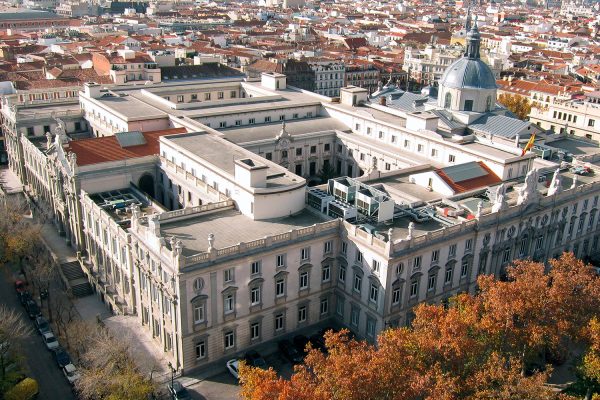
Prime Minister Pedro Sánchez’ left-wing government has withdrawn reforms of the body that appoints Spain’s judges, including those of the Supreme Court.
The climbdown is a victory for conservatives, who have for years blocked the appointment and elevation of more progressive judges through their control of the General Council of the Judiciary.
The council’s five-year term expired in December 2018, six months after Sánchez took power from the conservative People’s Party, but it has continued to name judges to Spain’s highest courts.
Supermajorities of three out of five lawmakers are required in both the Congress of Deputies and the Senate to install a new council, giving the center-right People’s Party and far-right Vox (Voice) — which together hold 40 percent of the seats — a veto.
Politicization
The Socialists and their left-wing allies had proposed to reduce the threshold from three-fifths to a simple majority for the appointment of twelve of the council’s twenty members.
They also wanted to prevent future councils from making judicial appointments once their term has expired.
The right hypocritically derided the changes as an attempt to “politicize” the judiciary when it has done just done for decades.
José Antich, the editor of the Catalan pro-independence outlet El Nacional, points out that the People’s Party has a long history of blocking changes to the General Council when it is in opposition only to support them when it is in power.
Jordi Nieva-Fenoll, a professor of law at the University of Barcelona, writes that conservatives are defending their control of the Spanish justice system “in a similar way to what is happening, for similar reasons, in the United States federal Supreme Court.”
Republicans in the United States blocked the appointment of Merrick Garland during the last year of Barack Obama’s presidency but confirmed three Supreme Court justices under Donald Trump.
Reactionary
This affects how Spanish courts rule. Its reactionary verdicts have become an embarrassment to Spain’s pretense to be a modern, progressive democracy.
The Supreme Court has effectively criminalized Catalan separatism by convicting not just the politicians who led a failed breakaway from Spain in 2017 under laws against “sedition” but the leaders of the region’s two largest pro-independence groups as well, who did little more than encourage Catalans to vote.
When they were sentenced to between nine and thirteen years in prison, the University of Barcelona put out a statement condemning the verdict. It was then convicted itself for — incredibly — “violating the right to education, freedom of expression and ideological freedom.”
Earlier this year, Catalan rapper Pablo Hasél was sentenced to nine months in prison for “glorifying” terrorism and slandering the monarchy and police, triggering a week of riots in Catalonia.
Criminalization
Catalans aren’t alone. Dozens of journalists, musicians and ordinary social-media users have been convicted in recent years under vaguely worded antiterrorism laws that give Spanish judges extraordinary discretion; a discretion many have been willing to use — always to criminalize left-wing views.
The Mallorcan rapper known as Valtònyc was sentenced to three and a half years in prison for “glorifying” terrorism and insulting the king. He fled to Belgium.
A student from Murcia received a suspended prison sentence of one year, and lost her university scholarship, for making a bad joke on Twitter about the 1973 assassination of Francisco Franco’s prime minister and presumed successor, Luis Carrero Blanco, by the Basque terrorist group ETA.
The Supreme Court sided with the Franco family to delay the exhumation of the dictator’s remains from the monumental Valley of the Fallen in the mountains outside Madrid, arguing it would not be in the “public interest”.
The Council of Europe has urged Spain to rewrite laws that criminalize free speech.
Wrong hands
The justice system’s conservative bias makes it harder for Sánchez to do a deal with the separatists who govern Catalonia.
Antich believes reform of the Criminal Code, to modify the crimes of “rebellion” and “sedition”, as well as an amnesty for the imprisoned separatist leaders are now “impossible mountains to climb.” I’ve argued before that Spanish lawfare only makes Catalan secession more likely. It reduces the space for a political solution.
Sedition is no longer a crime in most European countries, because, in the wrong hands, it can be used to persecute dissidents.
With judges who lock up rappers and students for insensitive lyrics and tweets but show deference to a dictator who died 46 years ago, Spaniards aren’t in the right hands.
